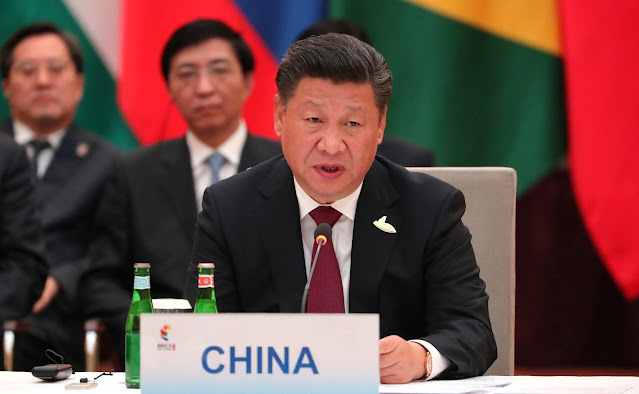 |
| China's Military Restructuring under President Xi Jinping |
President Xi Jinping of China has recently dissolved the Strategic Support Force (SSF), a unit established in 2015 to integrate cyber and space warfare capabilities. The SSF has been restructured into three separate entities: the Information Support Force (ISF), Aerospace Force, and Cyber Force. This move was conducted under the Central Military Commission (CMC), highlighting the emphasis on direct control and streamlined command lines.
Information Support Force (ISF)
President Xi Jinping considers the creation of the ISF a strategic decision aligned with the modernization and strengthening of the Chinese military. The ISF focuses on coordinating, constructing, and applying network information systems, which are essential for achieving information superiority in modern warfare. This restructuring aims to enhance the Chinese military's capabilities for high-quality development and competitiveness in an era of advanced technological warfare.
Evolution of China’s Military Reforms under Xi Jinping
The genesis of the SSF and its restructuring into the ISF and other forces can be traced back to Xi Jinping’s broader military reforms initiated in 2015. These reforms aimed to modernize the People’s Liberation Army (PLA) by reducing troop numbers and reorganizing the military’s structure into more efficient units.
Driving Factors Behind the Latest Reforms
Several factors influenced the decision to dissolve the SSF and establish new military divisions. Technological vulnerabilities and intelligence failures, such as the incident involving a Chinese surveillance balloon shot down by the U.S., highlighted the need for better coordinated and more resilient military structures. Additionally, the SSF was perceived as susceptible to international pressures and technological containment strategies, particularly from the United States. Issues of corruption within the military ranks also underscored the necessity for tight control and reliability within the military forces.
Implications for Global Security and Future Developments
The focus on cyber and information warfare capacities will likely impact global security dynamics, especially in terms of cybersecurity and space warfare. President Xi Jinping's direct control over the military aims to eliminate inefficiencies and ensure absolute loyalty and effectiveness of the military in peacetime and wartime scenarios. By restructuring the SSF into new divisions under direct CMC oversight, Xi Jinping is tightening the Party’s grip over the military, ensuring strict adherence to commands from the central leadership, and enabling the military to better respond to modern security challenges.
